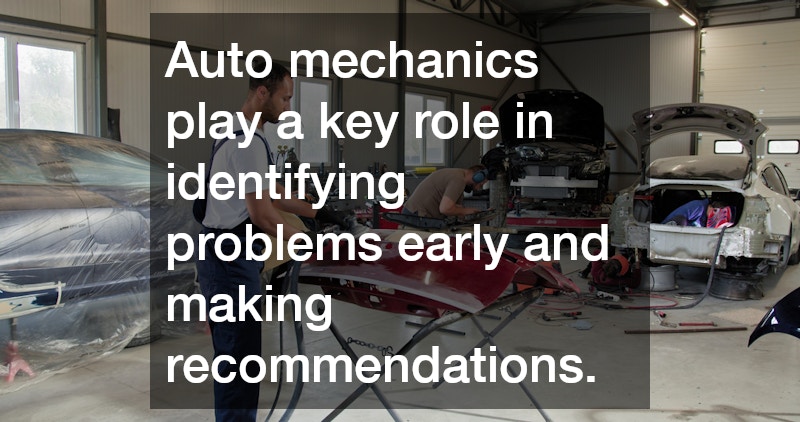Auto mechanics are faced with a wide range of vehicle issues every day, but there are a few recurring problems that show up time and time again. Understanding these common faults can help drivers maintain their vehicles more effectively and avoid major repairs down the line. Whether it’s a minor annoyance or a warning sign of a larger issue, these problems are best handled by experienced professionals.
In this article, we’ll take a closer look at three of the most frequent issues auto mechanics encounter on the job and why staying on top of vehicle maintenance is so important for safety and performance.
Engine Trouble and Warning Lights
One of the most frequent reasons people visit auto mechanics is due to engine issues or the sudden appearance of a warning light on the dashboard. These lights can be vague, confusing many drivers who aren’t sure whether it’s something urgent or a minor sensor fault.
In some cases, it may be something as simple as a loose fuel cap or a faulty oxygen sensor. But more serious problems like worn spark plugs, damaged ignition coils or issues with the catalytic converter can also trigger warning lights. Ignoring these alerts can lead to further engine damage, reduced fuel efficiency and eventually a complete breakdown.
Modern vehicles are equipped with computer systems that record fault codes, which auto mechanics use to diagnose the exact cause of the issue. A quick scan with diagnostic equipment can often save time and help pinpoint the underlying problem before it becomes more severe.
Brake System Wear and Tear
Brakes are one of the most important safety features on any vehicle, and naturally, they see a lot of wear and tear. Squealing, grinding or a spongy feeling when pressing the brake pedal are all signs that the system needs attention. Worn brake pads, damaged rotors or leaking brake fluid are among the most common brake-related problems auto mechanics are called on to fix.
Ignoring early signs of brake wear can increase stopping distance and put both the driver and others at risk. Regular inspections can catch these issues before they lead to a complete failure. Most manufacturers recommend brake checks during regular servicing, but any unusual noise or performance change should be looked at immediately.
Brake issues can also be linked to uneven tyre wear or alignment problems. When one part of the system starts to fail, it can cause additional strain on related components, leading to more expensive repairs down the road.
Battery Failures and Charging Issues
Another frequent concern auto mechanics encounter is battery failure, especially in colder months when the strain on electrical systems is higher. A flat battery is not only inconvenient but can also leave you stranded with little warning.
Batteries typically last between three to five years, depending on the type of vehicle and usage habits. Corrosion on the terminals, a failing alternator or a parasitic drain from electrical accessories can all contribute to a battery losing charge faster than expected. Auto mechanics will usually check both the battery and the charging system to make sure the issue is not a symptom of something deeper.
For drivers who rely on their vehicles daily, preventative battery checks are a worthwhile investment. Many workshops offer quick tests to determine if a replacement is needed, helping to avoid a sudden breakdown in the middle of a busy schedule.
Why Routine Servicing Matters
The best way to prevent these common issues is through consistent vehicle servicing and maintenance. Auto mechanics play a key role in identifying problems early and making recommendations that can extend the life of the vehicle. Delaying service intervals or ignoring early warning signs can lead to more severe damage and costly repairs.
Many drivers assume their car is fine as long as it’s running, but this can be a risky approach. Modern cars are built with more advanced systems than ever before, and small issues in one part of the vehicle can have a ripple effect that leads to much larger problems if not addressed.
Keeping a record of all services, inspections, and repairs also helps maintain the value of the car, particularly when it comes time to sell. Buyers often look for vehicles with a strong service history, knowing that the car has been looked after by qualified auto mechanics.
Final Thoughts
Auto mechanics deal with a wide range of issues every day, but engine warning lights, brake system wear and battery failures are among the most common. Being aware of these problems and knowing when to seek professional help can save time, money and stress in the long run.
Regular servicing, timely inspections and listening to your car when it signals something is wrong are the best ways to stay ahead of major repairs. Trusting qualified auto mechanics ensures your vehicle remains reliable, safe and roadworthy for years to come.

